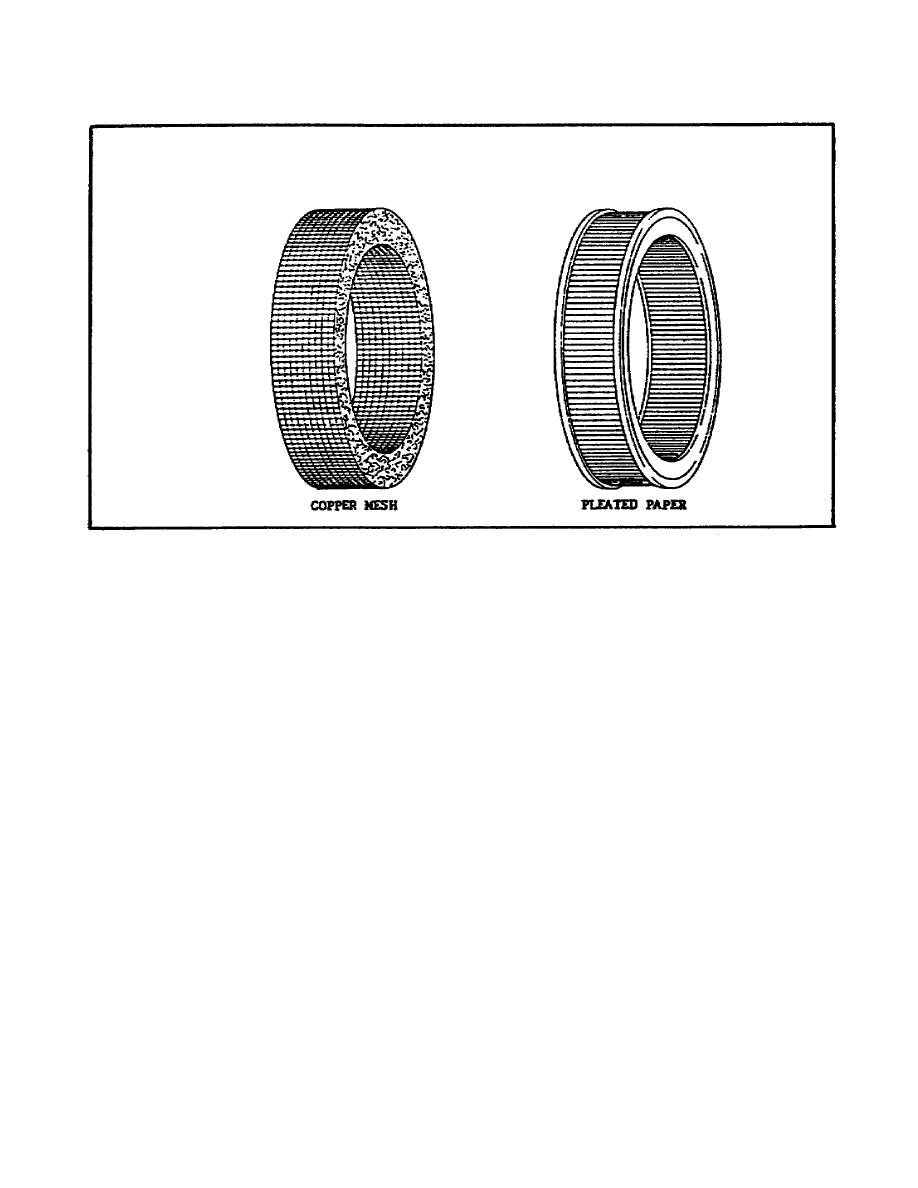
PRINCIPLES GASOLINE/DIESEL FUEL SYSTEMS - OD1620 - LESSON 1/TASK 2
FIGURE 9. DRYTYPE AIR FILTERS.
b. Evaporation. Evaporation is the changing of a liquid to a vapor.
The molecules of the liquid, not being closely tied together, are constantly
moving about among themselves. Any molecule that moves upward with
sufficient speed will jump out of the liquid and into the air. This process
will cause the liquid to evaporate over a period of time. The rate of
evaporation is dependent on the following:
(1) Temperature. The rate of movement of the molecules increases
with temperature. Because of this, the amount of molecules leaving the
liquid in a given time will increase as the temperature increases.
(2) Atmospheric Pressure. As atmospheric pressure increases, the
amount of air molecules present over the liquid also increases. The
increased presence of air molecules will slow the rate of evaporation. This
is because the molecules of liquid will have more air molecules to collide
with. In many cases, they will fall back into the liquid after collision.
(3) Closed Chamber. As evaporation takes place in a closed
container, the space above the liquid will reach a point of saturation.
When this happens, every molecule of liquid that enters the air will cause
another airborne molecule of liquid to fall back.
20




 Previous Page
Previous Page
